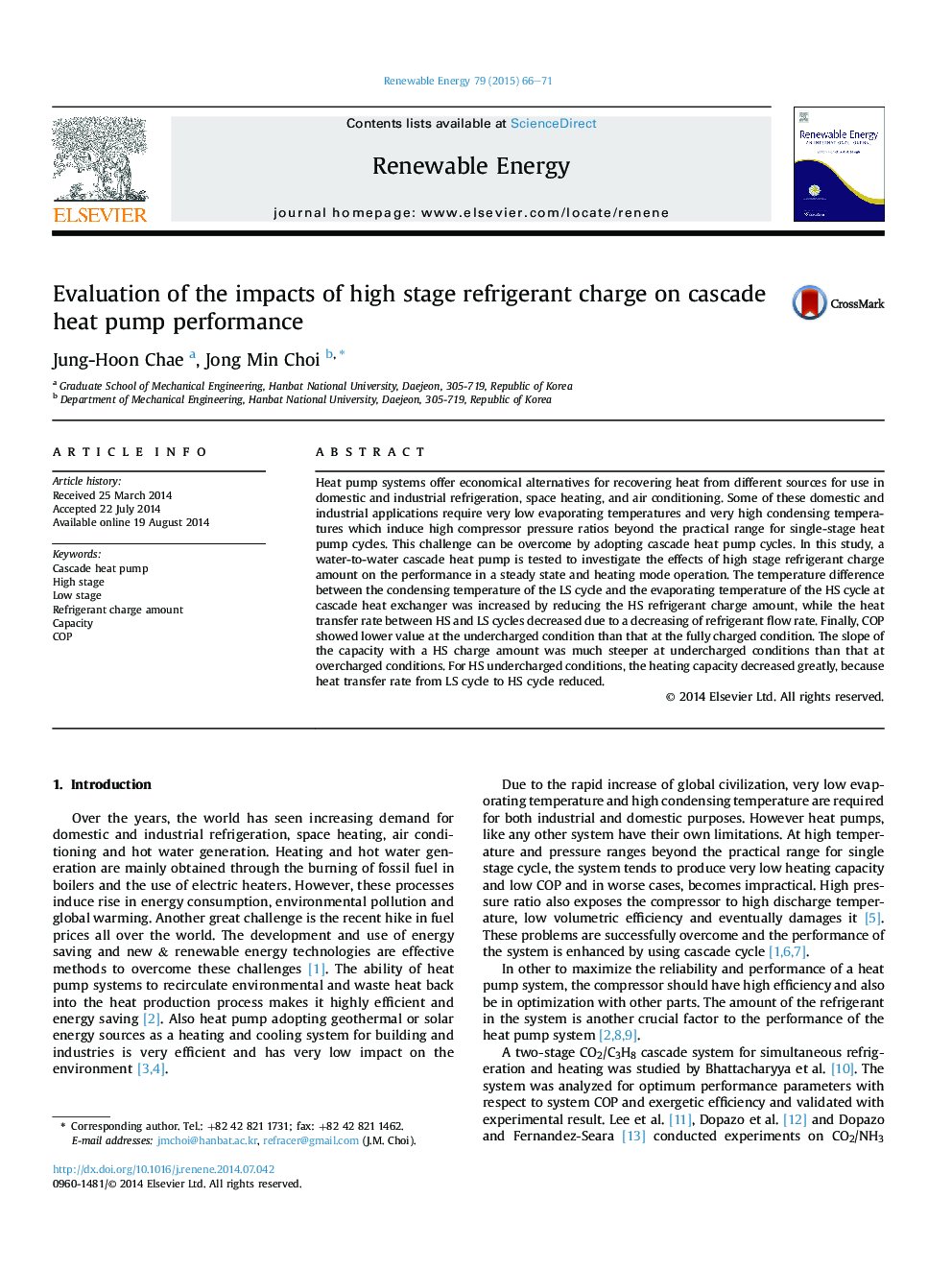| کد مقاله | کد نشریه | سال انتشار | مقاله انگلیسی | نسخه تمام متن |
|---|---|---|---|---|
| 299923 | 512459 | 2015 | 6 صفحه PDF | دانلود رایگان |
• The effects on the performance of a cascade heat pump was investigated according to high stage refrigerant charge amount.
• COP decreased at overcharge and undercharge conditions of the high stage cycle.
• The slope of the capacity with a HS charge amount was much steeper at undercharged conditions than that at overcharged conditions.
Heat pump systems offer economical alternatives for recovering heat from different sources for use in domestic and industrial refrigeration, space heating, and air conditioning. Some of these domestic and industrial applications require very low evaporating temperatures and very high condensing temperatures which induce high compressor pressure ratios beyond the practical range for single-stage heat pump cycles. This challenge can be overcome by adopting cascade heat pump cycles. In this study, a water-to-water cascade heat pump is tested to investigate the effects of high stage refrigerant charge amount on the performance in a steady state and heating mode operation. The temperature difference between the condensing temperature of the LS cycle and the evaporating temperature of the HS cycle at cascade heat exchanger was increased by reducing the HS refrigerant charge amount, while the heat transfer rate between HS and LS cycles decreased due to a decreasing of refrigerant flow rate. Finally, COP showed lower value at the undercharged condition than that at the fully charged condition. The slope of the capacity with a HS charge amount was much steeper at undercharged conditions than that at overcharged conditions. For HS undercharged conditions, the heating capacity decreased greatly, because heat transfer rate from LS cycle to HS cycle reduced.
Journal: Renewable Energy - Volume 79, July 2015, Pages 66–71
